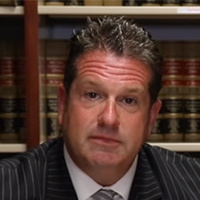Hicksville Criminal Lawyer, New York
Sponsored Law Firm
-
 x
x

Click For More Info:
-
Law Office Of Vincent Bianco Esq., P.C.
114 Old Country Road Suite 560 Mineola, NY 11501» view mapCriminal Law Where Every Client Matters
Vincent Bianco is a practicing lawyer in the state of New York who handles Criminal matters.
800-779-3490
Darren M. Shapiro
✓ VERIFIEDSince the firm's inception, Darren M. Shapiro, Esq. has been focusing on matrimonial and family law. His background in civil litigation and criminal d... (more)
Lindsay A. Bernstein
✓ VERIFIEDI am an experienced attorney in New Jersey with substantial experience in municipal court handling traffic matters and criminal cases. I work hand in ... (more)
Jeffrey Edward Litman
✓ VERIFIEDEugene Litman, Esq. established Litman & Litman, P.C. in 1958. Eugene raised his four sons with aspirations that they would join him in the legal prof... (more)
 Vincent Bianco Mineola, NY
Vincent Bianco Mineola, NY AboutLaw Office of Vincent Bianco, Esq., P.C.
AboutLaw Office of Vincent Bianco, Esq., P.C. Practice AreasExpertise
Practice AreasExpertise




